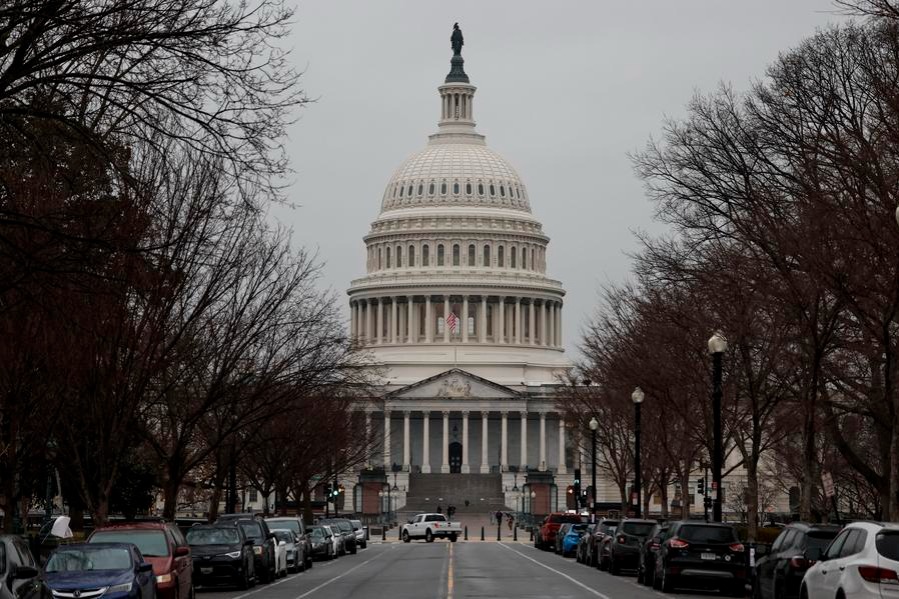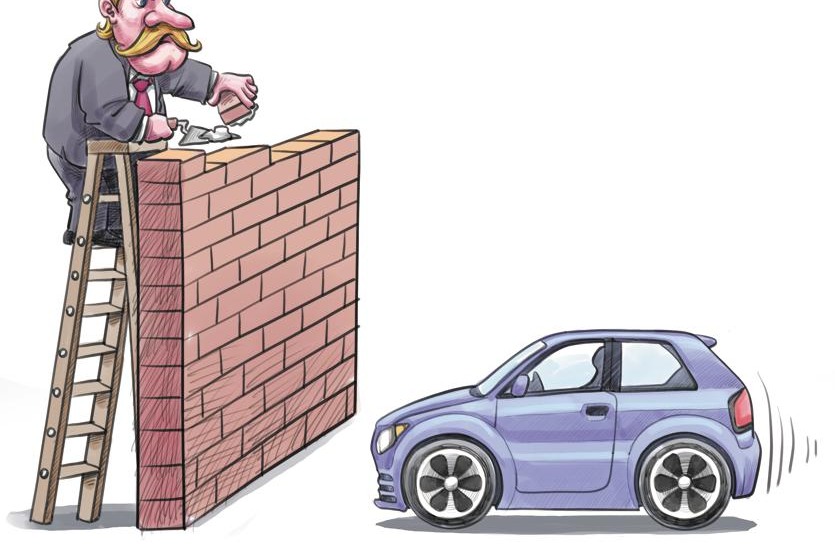Post-COVID-19 Sino-Africa BRI cooperation


China and Africa share historic similarities since their first contact in the 14th century down to the Bandung conference of the 20th century. In that, the two partners existed independently, enjoyed a prosperous historic past marked by commercial exchanges and trade, until the advent of the imperialistic West which led the two to unite and chart a common future for themselves in 1955.
The two partners faced with similar predicaments of imperialism saw a common ground against oppression through then-premier Zhou Enlai's message. Zhou advocated for "mutual understanding, respect, sympathy, and support, instead fear, exclusion, suspicion and antagonism". Zhou's message formed the bedrock of what has transcended into the most enviable cooperation among the contemporary global partnerships.
China's usage of the phrase "African Brothers" reflects the sincerity of adhering to Zhou's message of 1955. Sino-African cooperation under Forum on China Africa Cooperation and the Belt and Road Initiative have stood the test of time; a proof that China and African cooperation goes beyond interests to an all-weather friendship.
For instance, in the recent event of COVID-19 outbreak, China and African countries have used the opportunity to strengthen their age old friendship, and put up a collective fight against this common enemy of mankind. The two partners agreed to strengthen their cooperation, and support the leading and coordinating role of the United Nations and the World Health Organization in the fight against the pandemic.
Despite the pandemic situation of 2020, China has not lost its sight on goal of building a moderately prosperous society for people. It further seeks to strengthen its cooperation with partners along the BRI. Sino-African cooperation under the BRI has given rise to increased economic activities, and major infrastructural projects that have added structural changes to the continent.
In 2013, China announced the Belt and Road Initiative as part of the over 300 initiatives for its reform and opening-up. BRI is designed to boost trade and commerce. The initiative seeks to reconstruct the ancient silk route that linked Asia and Europe to a modern equivalent stretching through Asia, the Middle East, Europe, and Africa to link China and the rest of the world.
The initiative has won warm responses and active participation across the globe. Boasting a total of 126 countries and 29 international organizations as participants by the end of the first quarter of 2019, among which 37 African countries and African union have signed cooperation agreements with China.
Africa prefers gentlemen alliances and cooperation characterized by healthy negotiations, devoid of impediments and sanctions. As such, African leaders view BRI as a paradigm shift from development cooperation that are difficult for practitioners to participate actively. It welcomes China's pan-African approach under the Sino-African BRI cooperation.
In terms of Africa's development agenda, African countries are fully committed to BRI as part of the means to draw support toward quest of achieving sustainable development across the continent. Sustainable development from an African perspective is the overall development parallel to what is obtainable in the developed countries and suitable for African people.
The need to provide quality education across board, boost skill transfer, good health system, healthy environments--free from pollution and diseases, and vibrant economies, all form part of the development agenda that essentially translates into informed, employed, and healthy populace. Apart from investments in hard infrastructure on the continent, African countries sort to boost the knowledge-based infrastructure of its people. They seek to advance the skill-based partnership through education and training under the BRI.
According to Organization for Economic Cooperation and Development 2018 report, to prepare for 2030, people should be able to think creatively, develop new products and services, new jobs, new processes and methods, new ways of thinking and living, new enterprises, new sectors, new business models, new social models and strategic partnerships. Knowledge-based Infrastructure inform of skill transfer is the prerequisite for industrialization which in turn enhances the sustainable development processes. African leaders know that only a population with good number of skilled labor force can drive an industrialized economy.
As a result, Africa has to re-strategize its partnership under the BRI with a keen focus on skill transfer. Africa has a young and increasing urbanized workforce, with only 3 million formal jobs created annually (Mo Ibrahim foundation, 2018), despite a projected 10-12 million people added to Africa workforce yearly (African Economic Outlook, 2017). At the same time Africa's labor force is expected to rise from 620 million in 2013 to almost 2 billion in 2063 (AfDB, 2018), with population of urban settlers surpassing India's and China's combined (McKinsey report, 2016).
Therefore, to succeed in the labor market, there is need for broad range of both hard skills—such as knowledge of accounting practices or the ability to operate machinery—and soft skills, such as creativity or communication (OECD, 2012).
While Africa identifies skill transfer as major area for deepening cooperation under the BRI, media and culture are another fundamental areas for China and Africa to actively explore for their mutual benefits. Success stories achieved through Sino-African BRI cooperation, and their long diverse and rich cultures can only be told by China and African people. In other words, China and African people bear the responsibility of telling their own stories. China's media preponderance and Africa's media investment opportunities are areas to forge a more strategic partnership and exchanges.
Finally, BRI offers a new window of opportunity to counter the recent economic crisis, trade barriers, difficult economic environment on the international level, and unrestricted economic sanctions, by creating a new economic corridor for growth and development. African countries on the other hand, are keenly interested in BRI to pursue a diversified strategic cooperation as mentioned above for the betterment of their people.
Emmanuel Chidiebere Edeh is a doctorate student at School of Cultural Heritage, Northwest University, Xi'an China.
The opinions expressed here are those of the writer and do not necessarily represent the views of China Daily and China Daily website.
If you have a specific expertise and would like to contribute to China Daily, please contact us at opinion@chinadaily.com.cn , and comment@chinadaily.com.cn

































